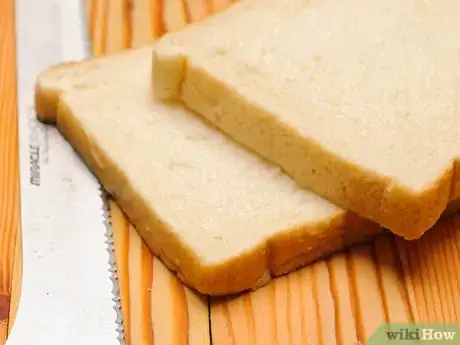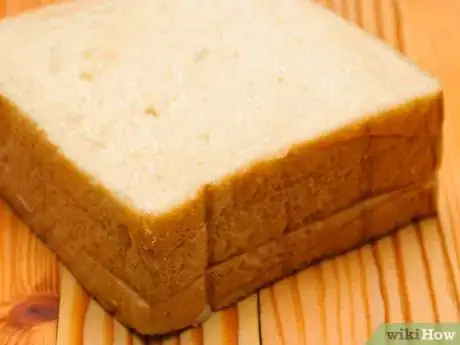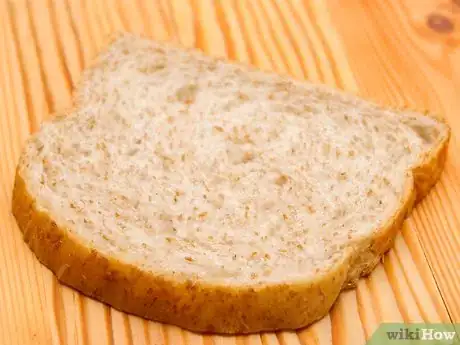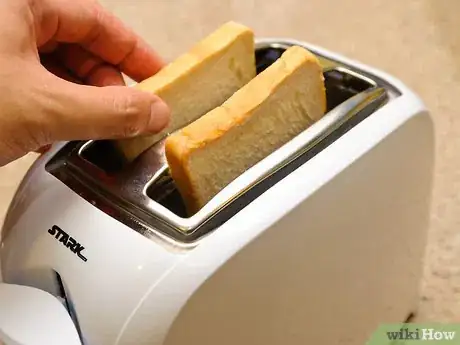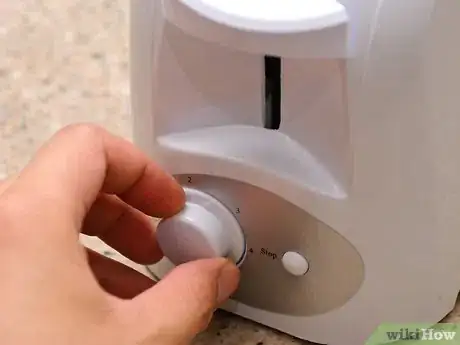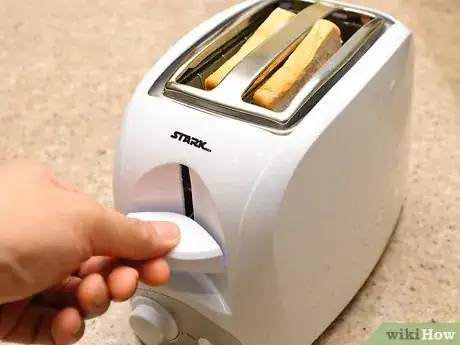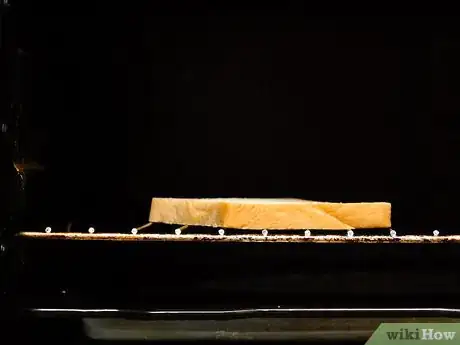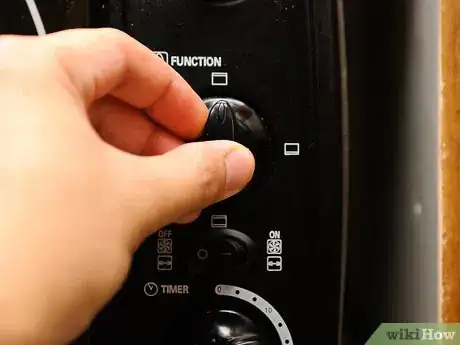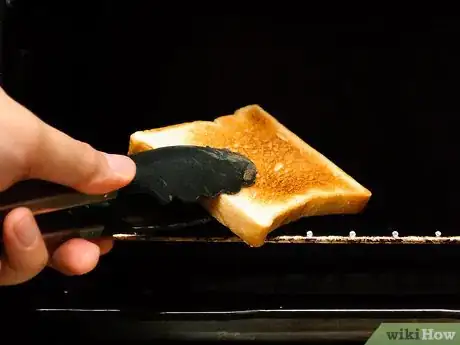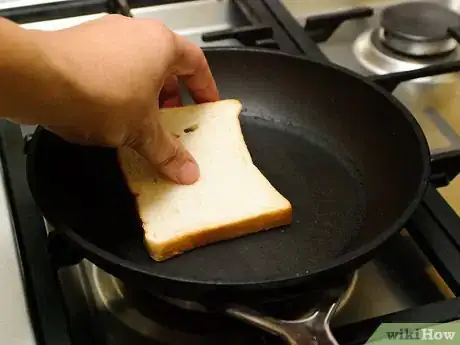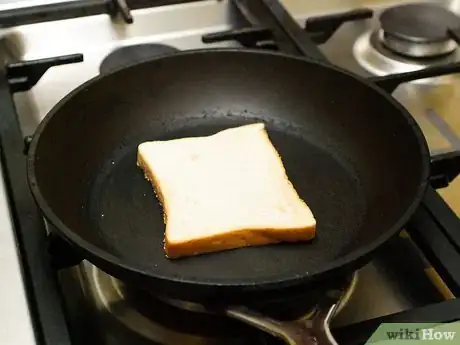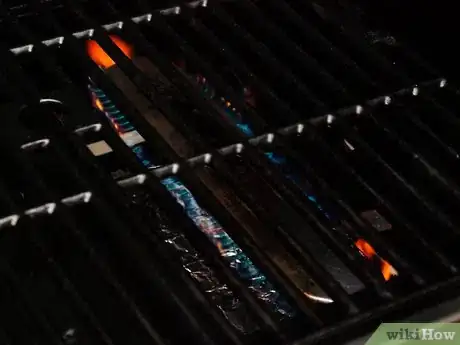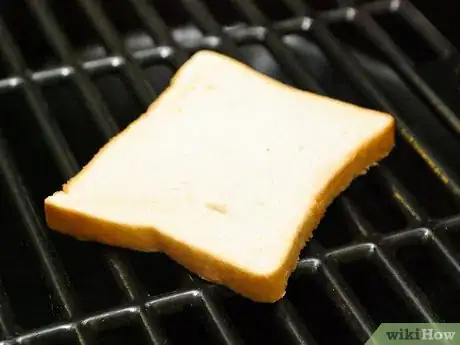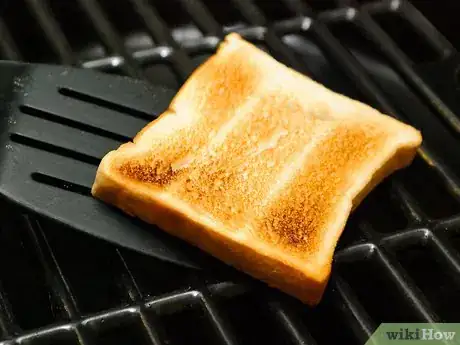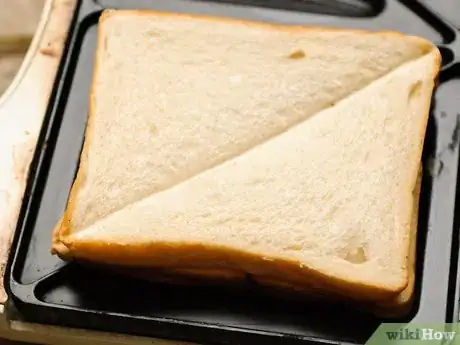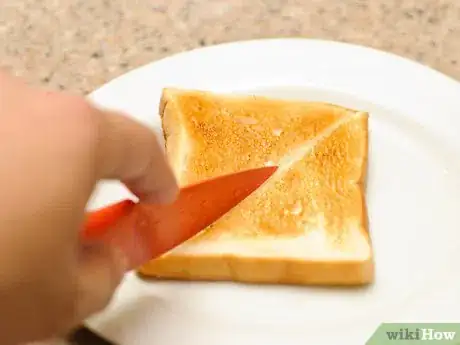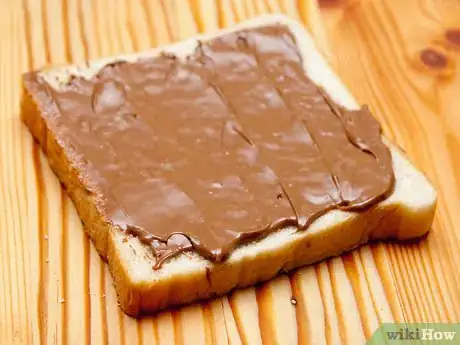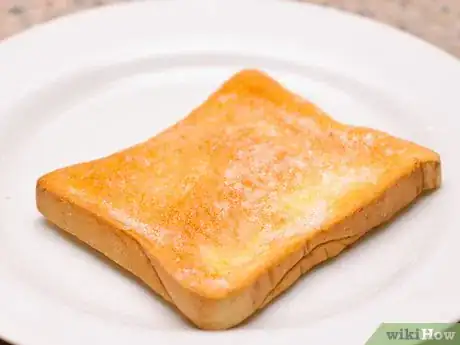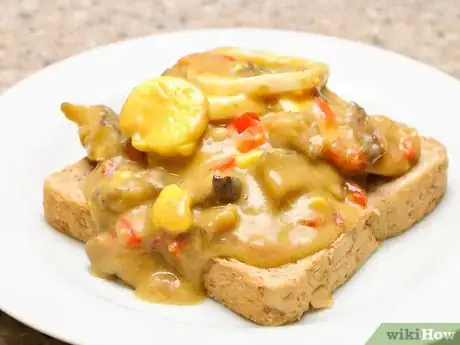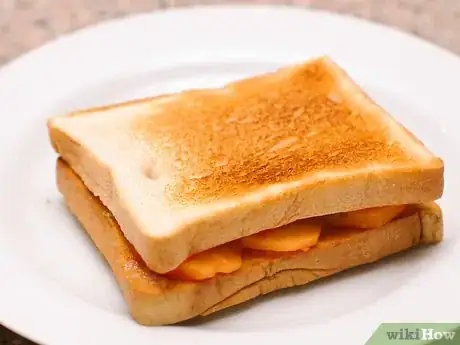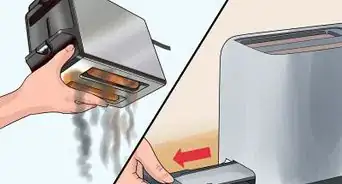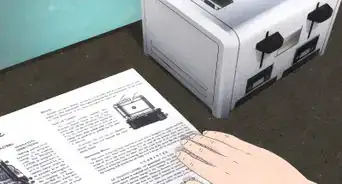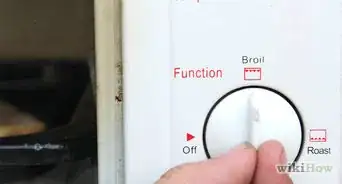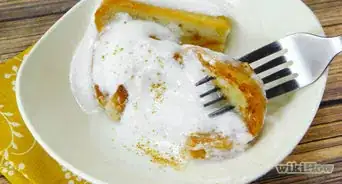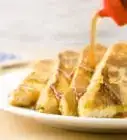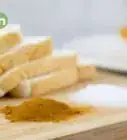wikiHow is a “wiki,” similar to Wikipedia, which means that many of our articles are co-written by multiple authors. To create this article, 175 people, some anonymous, worked to edit and improve it over time.
This article has been viewed 704,911 times.
Learn more...
Toast is almost as old as civilization itself, made by the early Egyptians to put some spark back in stale bread. It's still one of the most versatile, delicious, and completely perfect snacks for breakfast or as a side at any meal. You can make toast from any kind of bread in the toaster, in the oven, over a fire, and learn to top with a variety of different things to your taste. See Step 1 to learn more about making toast.
Steps
Selecting a Bread
-
1Choose a bread that fits in your toaster.
- Lots of problems arise when your bread does not fit the toaster properly, as this can cause uneven toasting and burnt edges. When selecting your bread, take into account how the bread is shaped, and how that will affect the uniformity of the finished product. Usually sliced loaf bread fits quite well (depending on the side of the loaf). Pick a bread with a uniform shape and flat surface.
- Changing how you cut your bread can help. If, for example, you have chosen to toast a baguette, make sure the length of the piece you cut is shorter than the length of the basket used to hold the bread. It is also important to take into account where to slice it down the middle. If you have a very large baguette, you might have to make one slice smaller than the other in order to make it fit properly. Even with sliced bread, this can be a problem. Bread being too thick/thin can affect the quality of your toast.
- Use a sharp knife when cutting your bread. Especially with crumbly breads, rough surfaces can make little pieces of bread stick out and burn. Unless you like the added "texture", use a sharper knife to avoid the unwanted bitter, black crunch.
-
2Decide how much you are willing to spend on bread.
- Consider how easily accessible your bread is compared to the gain of eating it. Whether that means baking it yourself or buying it at the store, consider if eating it is worth your time and money.
Advertisement -
3Pick a bread that toasts well.
- When deciding on a piece of bread to use, consider the characteristics of the bread that you like. If, for example, you really enjoy white bread and how soft and fluffy it is, toasting it would get rid of those characteristics. You may really enjoy the taste of your chosen bread, but find that you don't like it/like it less when it is toasted. It is important to define why you like the bread, and if toasting alters the texture/taste.
- Because of this, you should be open to trying new bread. As with any form of cooking, it affects the flavor and texture of the finished product. You may not like a certain bread but find that you enjoy it toasted.
-
4Try regular sandwich bread. Whether white, wheat, or rye, traditional soft sandwich bread makes excellent toast. It's always pre-sliced and results in a uniform toast that's perfect for making crunchy sandwiches or as a side to breakfast dishes.
- Soft white breads and other sandwich loaves tend to toast much more quickly than more hearty breads. Watch these kinds of bread closely to make sure they won't burn.
-
5Try out a denser loaf. If basic old white toast doesn't do it for you, try working with a denser crusty bread that'll yield a chewier toast with a crispy edge. Head to your local bakery and look for round loaves you can slice yourself and toast up to see what's good. Consider:
- French loaves or baguettes
- raisin loaves
- challah
- nine-grain or multi-grain breads
- brown bread
-
6Choose pre-sliced bread, if it's available. Because it's difficult to slice bread uniformly, toast is most easily made with pre-sliced bread you can get at the store. Even if you're buying bread at the bakery, you can usually have them machine-slice your loaf before wrapping it up for you.
- If you can't get bread that's machine-sliced, slice your own bread using a 'bread' knife. Aim for about 3/4 of an inch thick, slices that will be nice and thick but will also fit in the toast slots.
-
7Save old or stale bread for toast. If bread becomes too stale to use for sandwiches, don't throw it out. Toast it up! Throwing old bread in the toaster revitalizes it, and might have even been the catalyst for toast in the first place.
- Toast was likely invented in ancient Egypt, where pyramid-builders were often paid in bread that would remain left outdoors for long periods of time, becoming stale. To make the bread more palatable, it was livened up a bit over open fires, making the first toasted bread.[1]
Properly Toasting Your Bread
-
1Decide what level of browning you would like in your toast.
- Do you like your toast crunchy? Or a little on the softer side? It is important to define what your ideal toast is to better develop a method of achieving it.
- Different flavors of bread should be toasted at different levels. Depending on the bread, you may want to toast it differently. As stated earlier, you want to determine how your method of toasting will affect the characteristics you enjoy in the bread. If you hate when toast is soft in the middle, consider cooking it longer and vice versa.
-
2Take into account the density and thickness of your bread.
- Denser bread will take longer to toast and for the crunch to reach the middle of them. The opposite is true with airy, thin bread and you will want to adjust the cook time accordingly.
- The density and uniformity of your bread can affect how evenly toasted the end result is. Large bubbles in your bread can cause those areas to burn easily, while dense bread with small, uniform bubbles will usually have very even coloration.
-
3Find the best way of toasting your bread.
- 2 variables are very important when cooking toast: time and heat.
- The longer you cook the toast, the browner it will get. This is true of all heat levels.
- Knowing how deep into your bread you want the crunch to go will affect the heat level. For example, you may want your bread to reach a certain color, and although that is achievable by simply picking the highest setting and removing it after a short amount of time, the inside of the bread will still be like normal bread. Depending on how long your bread takes to cook and how crunchy you want it will affect both of these variables.
- To experiment with this, toast your bread in a non-stick pan and find what level of heat and amount of time achieves your desired texture.
-
4Adapt the cooking method to your toaster.
- Maybe one of the levels on your toaster achieves the desired outward appearance, but the bread on the inside is still uncooked. To solve this, simply pick a lower setting and run the toaster for longer. You may have to run it more than once, but you can always stop in the middle if twice the cook time is too much.
- If your toaster cooks unevenly, you can flip and rotate the toast at different times while your bread is toasting.
Picking a Toaster
-
1Evaluate your current toaster.
- Does your toaster cook how you'd like it to? If not, figure out what the issues are and if they can be solved.
- If you can find a way of reaching your desired toast, even if it requires a little more babysitting and work, it may be better than buying a new one.
-
2Know how much you are willing to spend on a toaster.
- If you do choose to replace your toaster, set a limit of how much to spend on one and do not go over it.
- Be wary of extremely cheap toasters. Some toasters can cost as low as $10 Although this sounds like a great deal, the toaster likely has similar issues that your old toaster had.
-
3Find a toaster that achieves the desired outcome.
- Check out different toasters within your price range and decide what works best for you. Make sure the price set seems appropriate for what is being offered.
- Examine the structural integrity of the toaster. If it is cheap and fragile, it probably won't last very long. You will have to buy a replacement soon, and it may actually be cheaper over time to buy a more expensive toaster of higher quality.
- When you buy a toaster, make sure the place you bought it from allows refunds. Keep your receipt and be careful to not lose anything that comes with the toaster that may be included in the box.
- Test out the toaster. If it doesn't cook your toast how you want, you can return it because you kept it in its original condition.
-
4Consider alternatives to toasters.
- Toaster ovens can be a great, and often better, way of cooking your toast than normal toasters. They can also be used as ovens and broilers, potentially making them worth the higher price if you want those extra functionalities.
- Simply toasting your bread on a pan can be a great alternative to buying a toaster. Although it takes more time and effort to make the toast, it makes up for in increased control. Also, since many people already have a stovetop and a pan, this method is absolutely free.
Toasting the Bread
Making Toast in a Toaster
-
1Carefully put your slices of bread into the bread slots of the toaster. Trim off excess bread on the ends if the slices are too big to fit in the slots. Make sure the sides of the toast aren't rubbing against the heat coils.
- If you cram it in, the ends are going to burn and stink up the kitchen. Make sure the slices aren't too thick or too wide.
-
2Choose the setting for the darkness of the toast. Depending on the type and thickness of the bread, and on how brown or crunchy you want it, set the knob higher or lower. If you are unsure, put on a low setting and if necessary after, repeat at a higher setting.
- Toasters, especially cheap ones, are often unreliable in the "darkness" knob department. Many people complain that even at the highest setting, you need to toast multiple times. It's best to start it light to make sure you don't burn the toast, then increase if you need to toast it a second time.
-
3Push down the button to toast the bread. Keep an eye on the toaster to make sure it doesn't burn, then carefully remove the hot toast from the toaster after it pops up when it completes the cycle.
Making Toast in an Oven
-
1Put the slices of bread flat on the oven rack. The best way to evenly toast bread is in a convection oven or toaster oven. You can place the slices of bread on a baking sheet or pan, or you can place them directly on the rack.
- Move the oven rack to the highest possible position in the oven to make toast. It's most efficient to use a high heat setting for a quick amount of time, preferably the broiler, which will use less energy by moving the toast closer to the heat source.
-
2Turn on the broiler of the oven, or set the heat on the toaster oven. The broiler, which heats the top of the oven only, is the quickest way to make toast. The only problem is that it can also burn quickly, so once you've set your desired temperature, you need to watch the bread closely so it doesn't burn.
- If you have a gas stove, you'll likely have a separate broiler, which you can use to make toast. The only difference is that it'll be in a different location, probably below the main oven compartment, or on top of the range.
- In most toaster ovens, you can set a timer that will turn off the oven at the appropriate time. It's still a good idea to watch it closely if you don't know your oven well.
-
3Use tongs to flip the bread over half-way through the toasting. If you've got your bread on a rack, or you're using a broiler, the side facing up is going to toast, but the side facing down will still be soft. When you see the top start to brown, flip the bread over to toast the other side.
-
4Remove the toast from the oven. Again, the broiler can quickly burn the toast, so remove it as soon as it looks nicely crisp and brown. It'll be black in another minute.
Making Toast in a Skillet
-
1Put bread flat in a skillet. The best, most even toasting that you can do on the skillet comes from a cast-iron skillet, with no butter or oil to grease it. Just put your bread into the pan dry and let the heat toast the bread.[2]
- Adding the butter before it's even toasted? Why not. You can fry your toast in a little butter or oil to crisp it up and give it a golden crust. This is sometimes called "Texas toast," and it's delicious.
-
2Heat a skillet over medium-high heat. When your bread is in, simply heat the skillet and toast it in the pan. The first side will take a bit longer while the pan heats up, so it's a good idea to keep an eye on it so you don't burn the bread.
-
3Flip the bread over periodically. Using tongs or a turner, flip your bread over when the underside is done and start toasting the other side. You might as well turn them regularly to make sure you're getting an even crunch on both sides of the bread.
Grilling Toast Over a Fire
-
1Heat a grill rack over an open flame. One of the most under-appreciated and completely delicious ways to enjoy a slice of toast is by throwing some bread or buns on the grill and letting the heat and smoke crisp them up. Try this after grilling burgers, or bratwursts to pick up any meat juices left on the rack, or liven up your next campfire breakfast with smoky toast.
- If you're using a campsite grill rack, try to clean it up first by scraping it with a spatula or a knife. They can be kind of rusty and stuck with gunk. Let it heat some in the fire to cleanse it, and then scrape off any carbon bits left on.
-
2Place bread slices or buns directly on the grill rack. You can drizzle a little olive oil onto slices of hearty French bread to get a nice crunch going, or you can just place bread directly onto the rack. Keep a close watch, because it'll toast up very quickly.
- Leave the lid off the grill. It'll happen too fast to worry about conserving the heat. If you're over a fire-pit, stand close by and watch the toast. It'll be burned by an extra couple of seconds.
-
3Turn the bread over frequently. Toast over the grill can burn or even catch fire very quickly, so it's a good idea to keep it rotating from side to side, as you would a marshmallow. If it gets a little scorched, try not to worry too much.
- It's difficult to get bread truly "toasted" over the fire, but that smoky scorching is a delicious alternative that's just as good.
-
4Go super-primitive. The early Romans made toast by laying out slices of bread on hot rocks close to the fire. It doesn't get any more simple than that. Lay out some bread on a rock and howl at the moon on your next camping trip.[3]
-
5Try out a "pudgy-pie" maker. The old camp classic is perfect for making toast or grilled sandwiches over an open fire. Basically, a pudgy-pie maker is a metal clamp with long handles that you can use to toast bread over a fire with.
- Butter or oil both inside surfaces of the metal, then place your slices of bread (plain white bread usually works best) inside the maker and clamp it closed. Hold over the fire for a few minutes on each side and check it periodically to make sure it's not burning. Enjoy hot.
- Making a grape jelly sandwich in the pudgy-pie maker over an open fire is a camp luxury you owe yourself. Like, now.
Using Toppings and Add-Ons
-
1Slice your toast in half, quarters, or leave whole. Traditionally, at old diners, the cooks would slice dry toast (without butter) in half vertically, and would slice buttered toast on the diagonal, so that the waitresses would could differentiate between them quickly and easily. Plus, everybody knows diagonally-cut toast tastes better, right?
- The club sandwich is cut diagonally twice, while toast sticks--slice in several vertical strips, are commonly served with a soft-boiled egg, to make for easy dipping. Mix it up. Cut your toast however you most like to eat it.
-
2Spread a single topping on your toast. When you've got a perfectly-crispy slice of toast straight from the toaster, it makes a great vehicle for toppings. While you can obviously put anything on your toast you like, there are some classics. Common toast-topping options include:
- butter or margarine
- peanut butter
- jelly or jam
- Nutella
- eggs, fried or scrambled
- Philadelphia-style cream cheese
- Cheez Whiz-style style process cheese spread
- devilish ham (spread ham paste)
-
3Make cinnamon-sugar toast. It's hard to think of something more comforting and delicious to eat for a snack than toast with cinnamon and sugar-sweetened butter. To mix up this delicious topping for your toast, thoroughly combine the following ingredients in a small cup or bowl, and spread onto toasted bread:
- 1/2 tablespoon of butter, soft
- 1/2 teaspoon of cinnamon, ground
- 1 teaspoon granulated sugar
-
4Make a toasted cheese. Great for a side to lunch or a snack in and of itself, a toasted cheese or a cheese toast is a simple slice of bread topped with melted cheese. Made traditionally with cheddar, you can use any cheese you like. To make it, the oven is your best bet.
- Toast the bread on one side and remove from the oven. Top the untested side with slices of your favorite kind of cheese, or a shredded variety.
- Return the bread to the oven so the bread continues toasting on the top side, melting the cheese at the same time. Remove from the oven when the cheese is bubbly and the toast is brown.
-
5Try mushrooms, beans, or chipped beef. While it may sound strange to the uninitiated, savory gravies are often used to top beans in English cuisine, for breakfast or snack.
- Sautéed mushrooms make an excellent side to steaks or chops, especially when topping a slice of grilled toast.
- Beans on toast is a staple of the full English breakfast, featuring a basic slice of toast with baked beans on top.
- Creamed chipped beef on toast is Midwestern cooking at its finest, and a Military staple commonly referred to with a crude bathroom epithet (Hint: something on a shingle). Think of it as a poor man's biscuits and gravy.
-
6Take care of business with a Fried Elvis. In his later years, legend has it, the singer favored nothing so much as an enormous white-bread peanut butter, banana, grape jelly, and bacon sandwich, fried up in bacon grease. You think toast is good? Try frying it in bacon grease and topping it with that mess. You're in Fat-Elvis heaven. To make the sandwich:
- Fry up a few slices of bacon in a skillet, reserving the grease. Remove the bacon and make a peanut butter sandwich on white bread, topping it with the bacon and a generous portion of sliced banana and your favorite jelly.
- Return the whole sandwich into the skillet with the grease in it, frying it evenly on both sides and heating it throughout. When the bread becomes toasty and golden, it's ready to eat. Be sure to use a napkin.
What to put on your toast
-
1Find out what your toast is missing.
- Try your toast using your tested method and decide what you could add onto it. Is it missing a bit of salt? Sugar? Fruity flavor? Whatever you think would improve it. (This is obviously optional, you can always eat the toast plain if you prefer it that way.) Try to pinpoint the specific item you think would improve your toast.
-
2Test out different toppings.
- Look around your fridge/cupboard and try a few different ingredients on your toast until you find something you like.
- If you know what topping you want to add but don't have it, see if your local grocery store has it and that it isn't too expensive.
- Some ingredients, such as butter, may be difficult to spread on your toast. Buying alternatives like spreadable margarine can make your morning toast less of a hassle (provided you enjoy the taste of it). You may also be able to leave your butter out in a sealed butter container, as long as you don't leave it out for too long it should be fine and make it much easier to spread.
Community Q&A
-
QuestionWhat is the best kind of bread to use? Which method makes the most lively toast?
 Community AnswerLively toast? Anything with an abundance of seeds is great. Pumpernickel bread is tasty. Rye toasts nicely. Crusty bread is good but don't toast until it burns. Have some fun and buy different bread varieties to test out for yourself -- that way, you'll find out exactly what you like most and it'll be sure to be available where you live.
Community AnswerLively toast? Anything with an abundance of seeds is great. Pumpernickel bread is tasty. Rye toasts nicely. Crusty bread is good but don't toast until it burns. Have some fun and buy different bread varieties to test out for yourself -- that way, you'll find out exactly what you like most and it'll be sure to be available where you live. -
QuestionCan I put it in the microwave?
 Community AnswerNo. Microwaves don't work quite the same as toasters, so you'll just have very tough bread in the end.
Community AnswerNo. Microwaves don't work quite the same as toasters, so you'll just have very tough bread in the end. -
QuestionHow do I make Cinnamon apple toast?
 Community AnswerPut cinnamon and apple on pre-cooked toast.
Community AnswerPut cinnamon and apple on pre-cooked toast.
Warnings
- Don't stick your body parts or metal objects into the toaster. You could get burned or electrically shocked. Nylon tongs without any metal parts is a better choice for jammed bread. Or use wooden or bamboo chopsticks or tongs.⧼thumbs_response⧽
- Don't get your toaster or its cord anywhere near water. It's dangerous!⧼thumbs_response⧽
- Don't walk away, always attend your cooking, watching it closely, as some appliances might stick in the 'on' position, or get too hot, and may cause a fire, as well as burning your toast.⧼thumbs_response⧽
Things You'll Need
- Bread
- Bread knife (for unsliced bread)
- Toaster, toaster oven, or stove and skillet
- Butter (optional)
- Butter knife (optional)
- Oven Mitts (optional)
- Toppings (optional)
- Plate or a paper towel/napkin (recommended)
References
About This Article
To make toast with a toaster, place a slice of bread in the toaster and push down the handle, or select the "toast mode" if you are using a toaster oven. Adjust the dial or lever on the toaster or toaster oven to your desired darkness. Once your bread is done toasting, slowly remove it, taking care not to touch any metal components of the toaster or toaster oven that might burn your fingers. You can also make toast on a stovetop. First, butter both sides of the slice of bread. Then, toast the bread in a pan over medium-high heat. Flip the bread periodically so it toasts evenly on both sides. Once you have made your toast, spread on your favorite toppings. Common toast toppings include butter, avocado, nut butters, olive oil, and jam.
